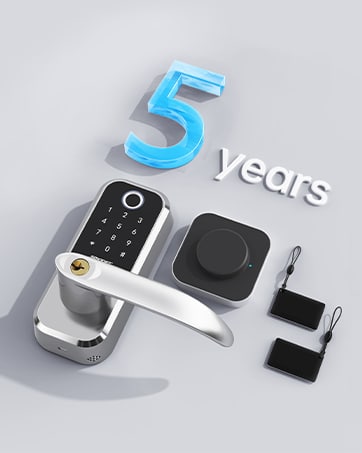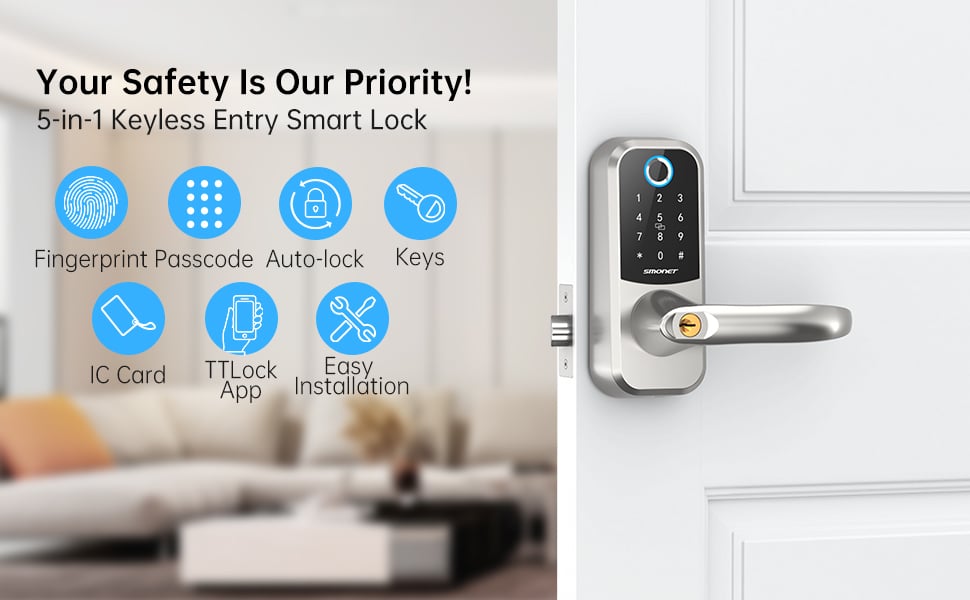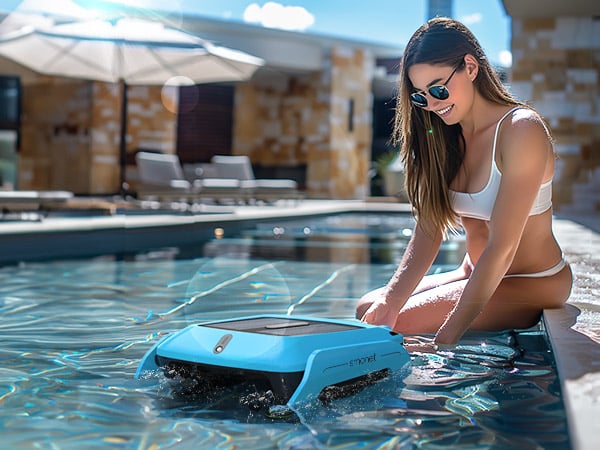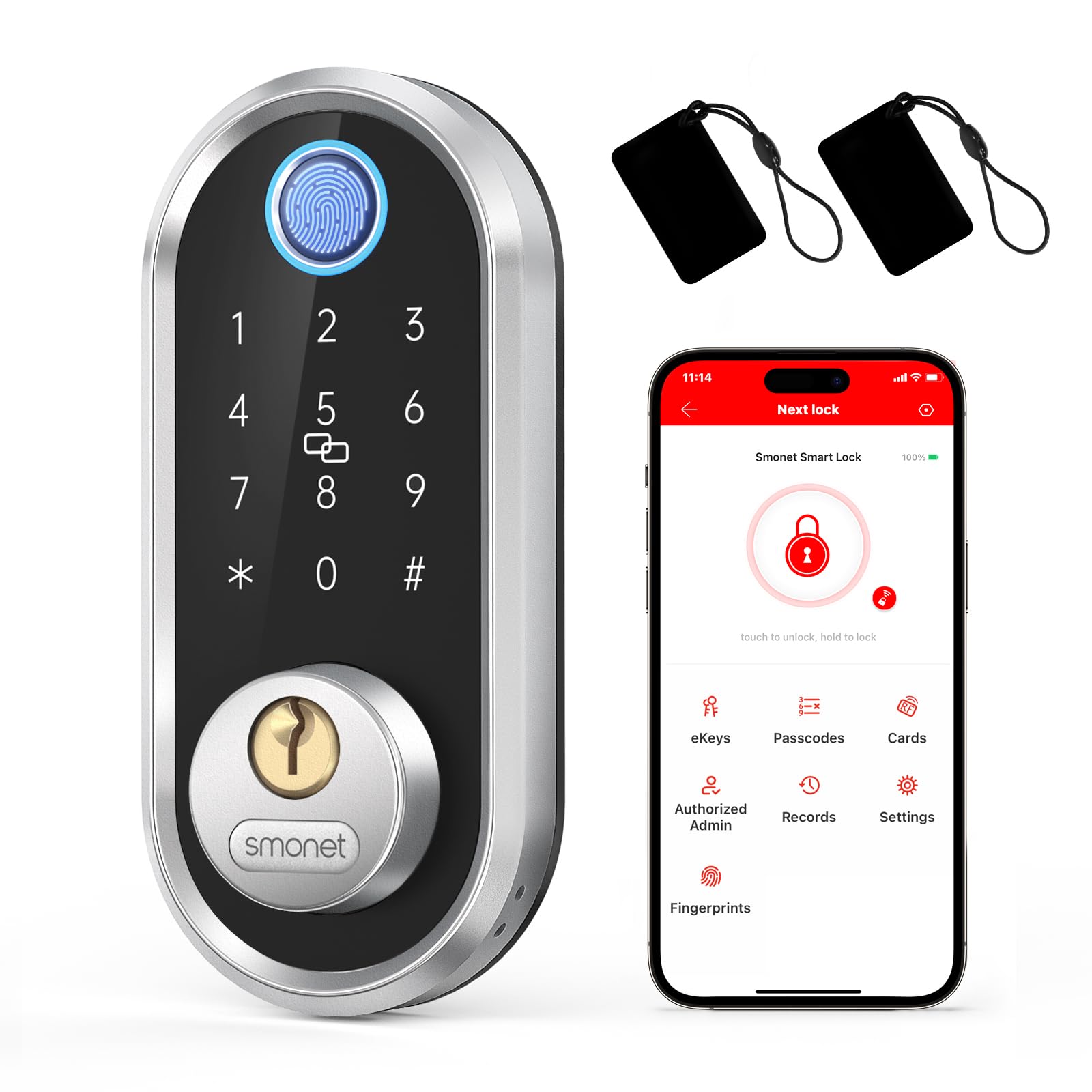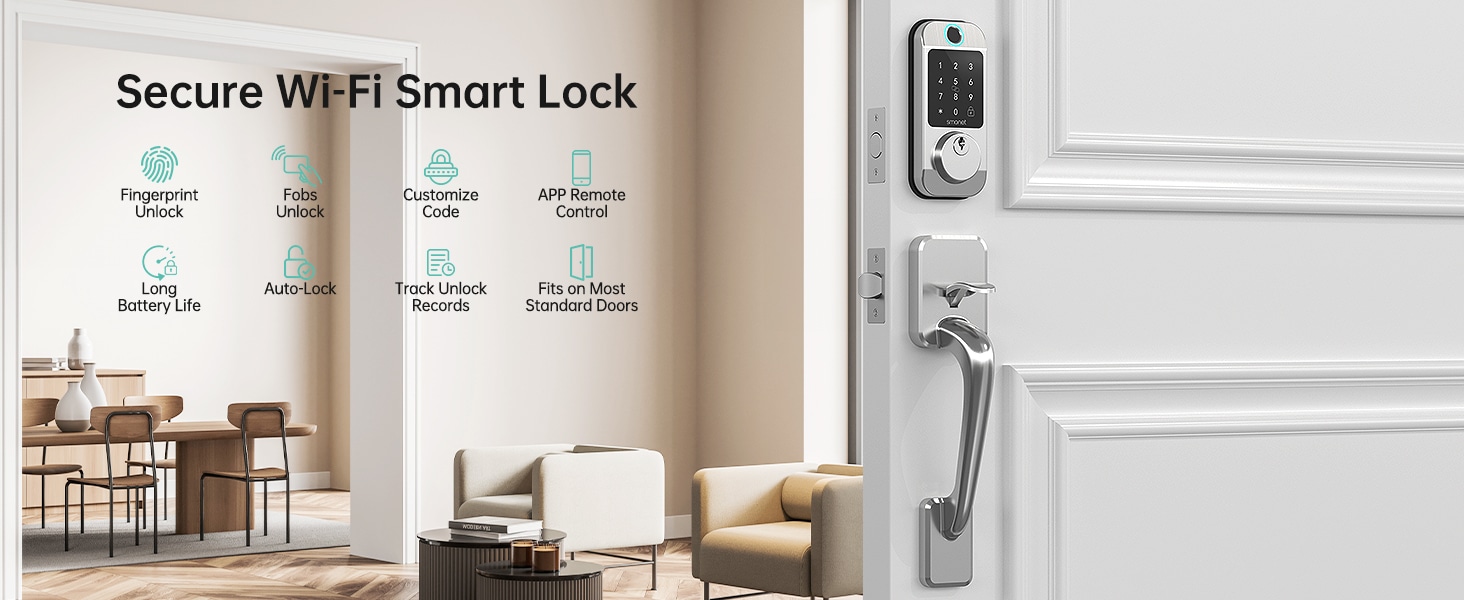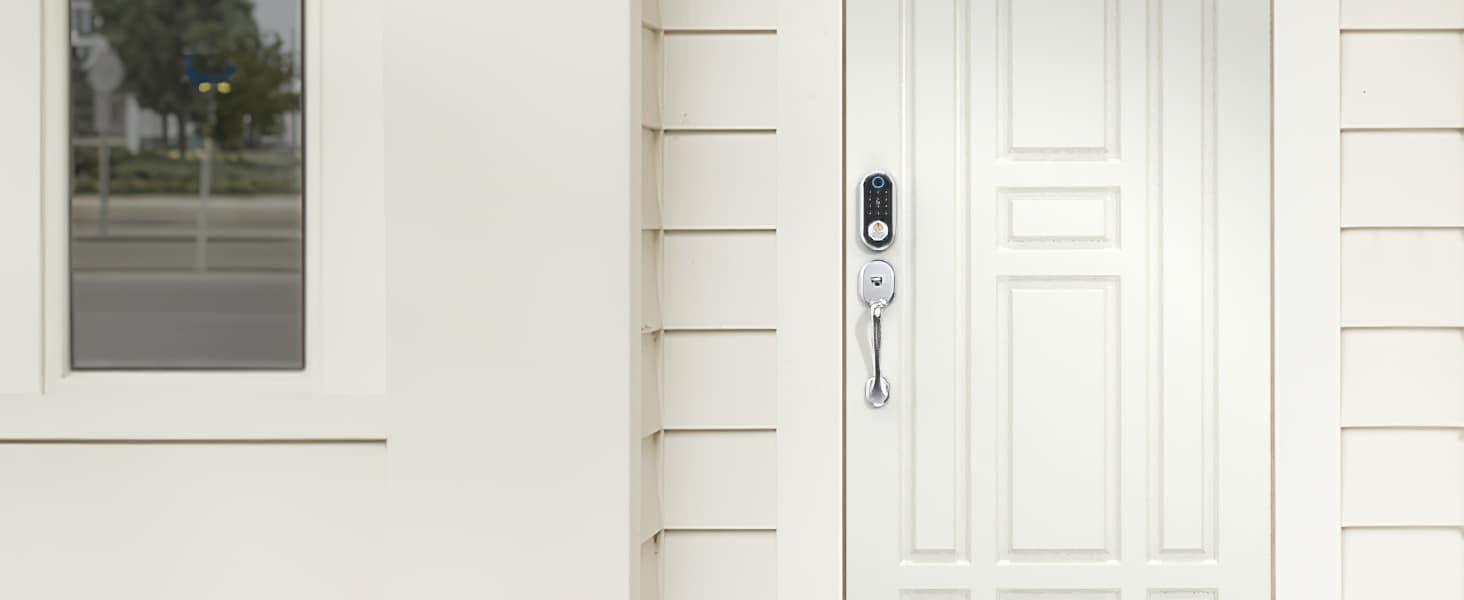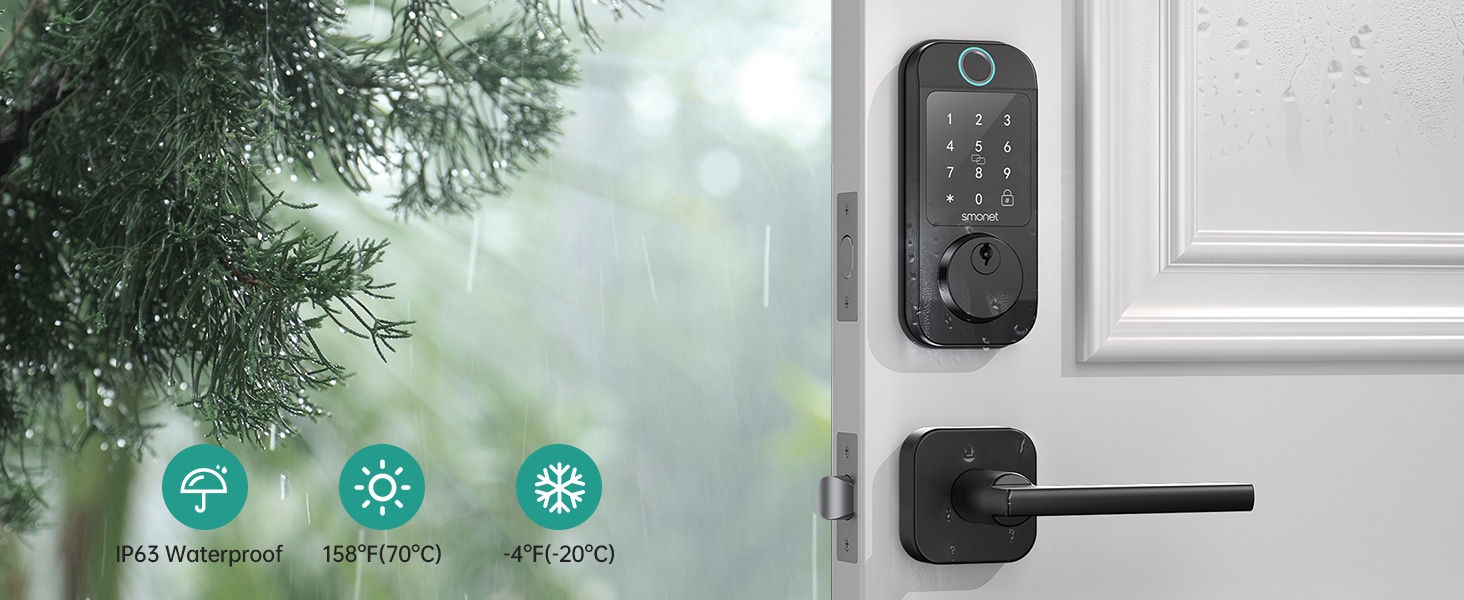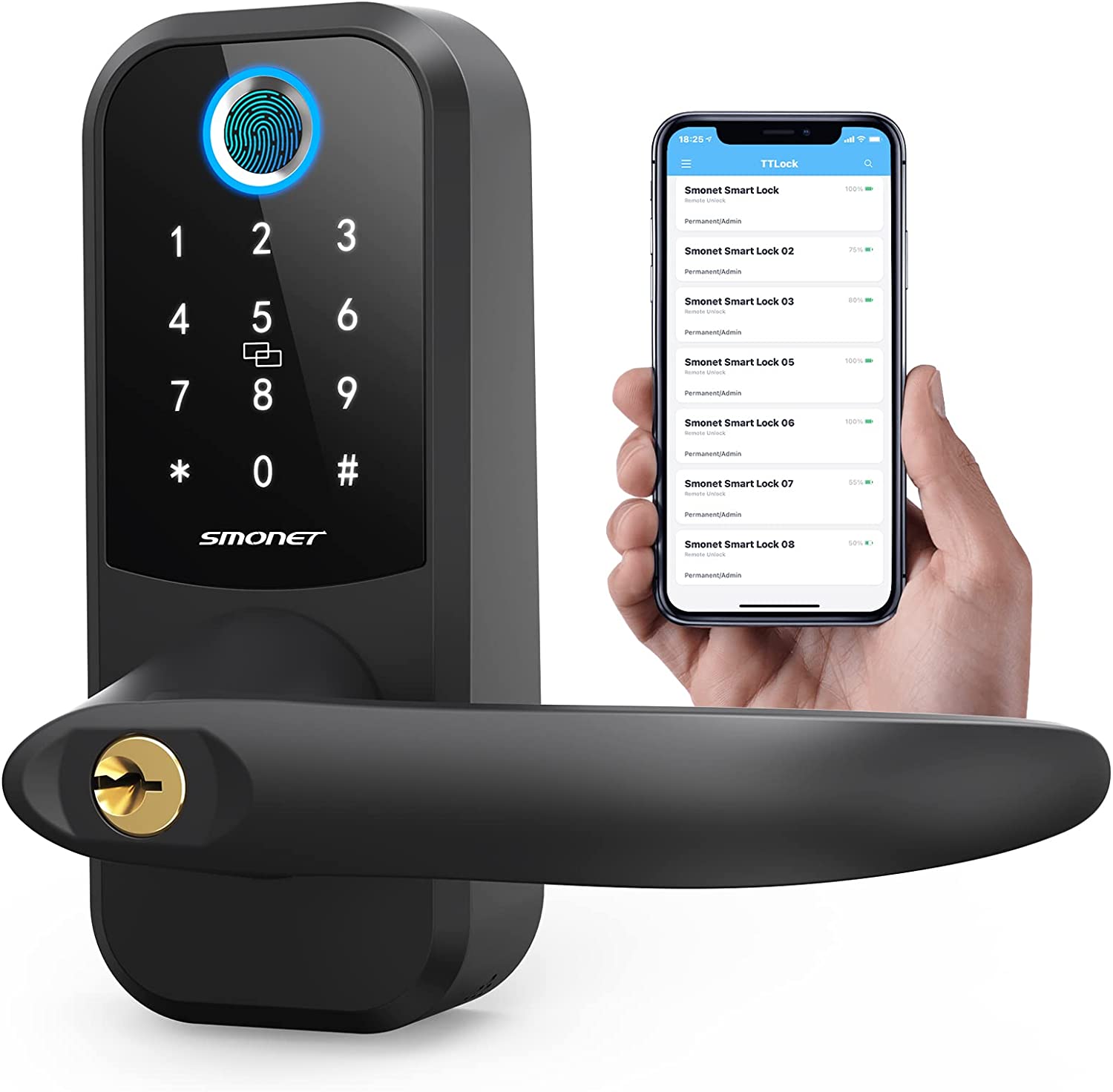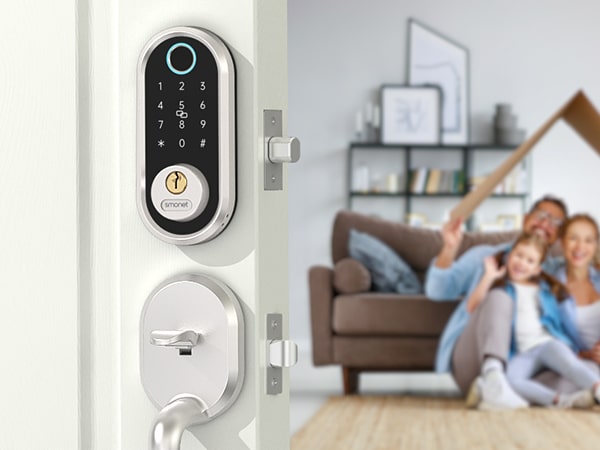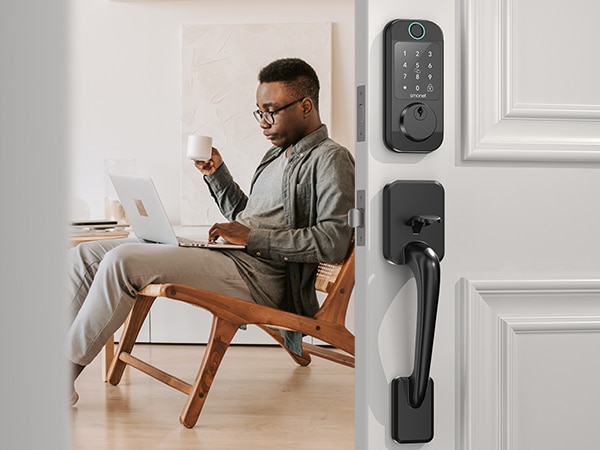The Impact Of Cold Weather On The Battery Life Of Keypad Door Lock Outdoor Locks
The advent of fingerprint keypad deadbolt has revolutionized the security industry by offering solutions that extend past traditional key-lock systems. Although keypad door locks provide undeniable security convenience, their reliance on batteries can be a concern, especially during extreme weather conditions. Cold weather, in particular, can have significant effects on the performance and lifespan of batteries within keypad door locks. This article aims to delve into how cold weather impacts these locks’ battery life.
Table of Contents
Understanding the Basics: How Cold Weather Affects Batteries
To start, it’s crucial to grasp how batteries work: they produce electricity through a series of chemical reactions. These reactions involve the movement of charged particles, known as ions, between different materials within the battery. When a battery is exposed to cold temperatures, the chemical reactions that facilitate this movement slow down significantly. As a result, the battery’s efficiency in generating power diminishes, leading to reduced performance. This means that in colder conditions, keypad door lock with deadbolt powered by batteries may experience shorter run times or may not function properly at all until the temperature rises.
Diminished Power Output:
Electronic locks may struggle to function optimally in cold weather as the reduced rate of chemical reactions may result in lower power output. Batteries may appear to deplete much quicker during cold spells, causing the lock to lose power and potentially be inoperable.
Shortened Battery Life:
Extreme cold can cause irreparable damage to the battery’s internal components, resulting in a shorter overall lifespan. This means that batteries in a wifi deadbolt with a keypad may require more frequent replacements in colder climates.
Lag in Response:
As the power output decreases, the response time of the locking mechanism may exhibit noticeable delays. This can lead to inconvenience for users, as the keypad may become less responsive, requiring multiple attempts or prolonged pressure to unlock. Consequently, the process of accessing the locked area can become frustratingly slow, potentially causing delays in situations where efficiency is crucial.
Practical Tips for Mitigating Cold Weather Effects
While the cold weather’s effects on battery life are unavoidable, here are some practical tips to consider:
Materials for Digital Keypad Door Lock Insulation
Ensuring proper insulation around the door and lock is essential for maintaining a comfortable indoor environment, especially in colder weather. By sealing any gaps and using high-quality insulating materials, you can effectively block out frigid air. This not only helps to protect the door and lock from extreme temperatures but also reduces the risk of battery drain in digital keypad door locks. An insulated lock is less susceptible to the cold, which helps it function reliably even in harsh winter conditions. Taking these steps can enhance the longevity of your lock and improve security.
electronic keypad door lock: Battery Type
When selecting batteries for use in colder environments, it is advisable to consider lithium batteries. Unlike alkaline batteries, which can struggle to maintain performance in low temperatures, lithium batteries are specifically designed to operate more efficiently in these conditions. They tend to deliver a more consistent and reliable power output, ensuring that your devices function optimally even in harsh weather. Additionally, lithium batteries typically have a longer lifespan and higher energy density, making them a more effective choice for applications requiring sustained power.
Regular Battery Change:
Especially in cold weather, ensure regular checking and changing of batteries as needed to maintain the lock’s performance.
Use Battery Heater:
Although not common, some high-end locks come with battery heaters to help maintain optimal working temperatures.
In conclusion, the impact of cold weather on the battery life of keypad door locks is a considerable factor to note, especially for those living in colder climates. By understanding the nature of this impact and taking some mitigative steps, however, it’s possible to maintain the performance and convenience of these modern security systems year-round.
Prime Day OFF
Until the End
-
Master Of Cleanliness: Visual Guide To Recognizing And Understanding Your Electric Pool Cleaners
-
Making the Right Choice for A Best Keypad Door Lock: A Guide Based on Material Consideration
-
Door Knob With Fingerprint Identification- The Future Of Home Security
-
An Evaluation Of Safety Features In Electric Lawnmower Motor According To Consumer Reports
-
How To Change Your Smonet Robot Pool Vaccum Effectively
-
Selecting the Ideal Digital Door Lock Style and Color for Your Abode
-
The Efficient Smonet Pool Vacuum: A Comprehensive Review
-
Smonet Vs. Ego Transforming Lawn Care Through Innovation And User Convenience
-
Exclusive Features Of The Smonet Electric Lawnmower: A Comprehensive Review
-
Evolution Of Security- Smart Door Key Lock

